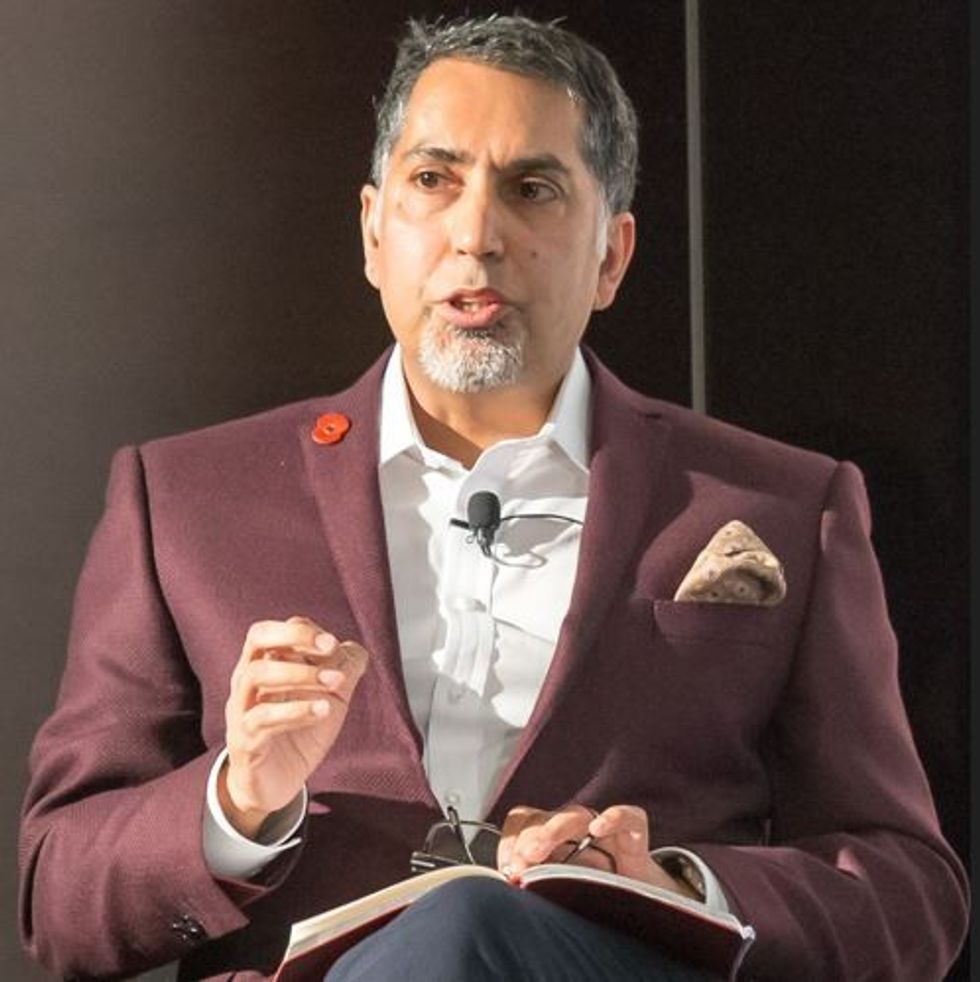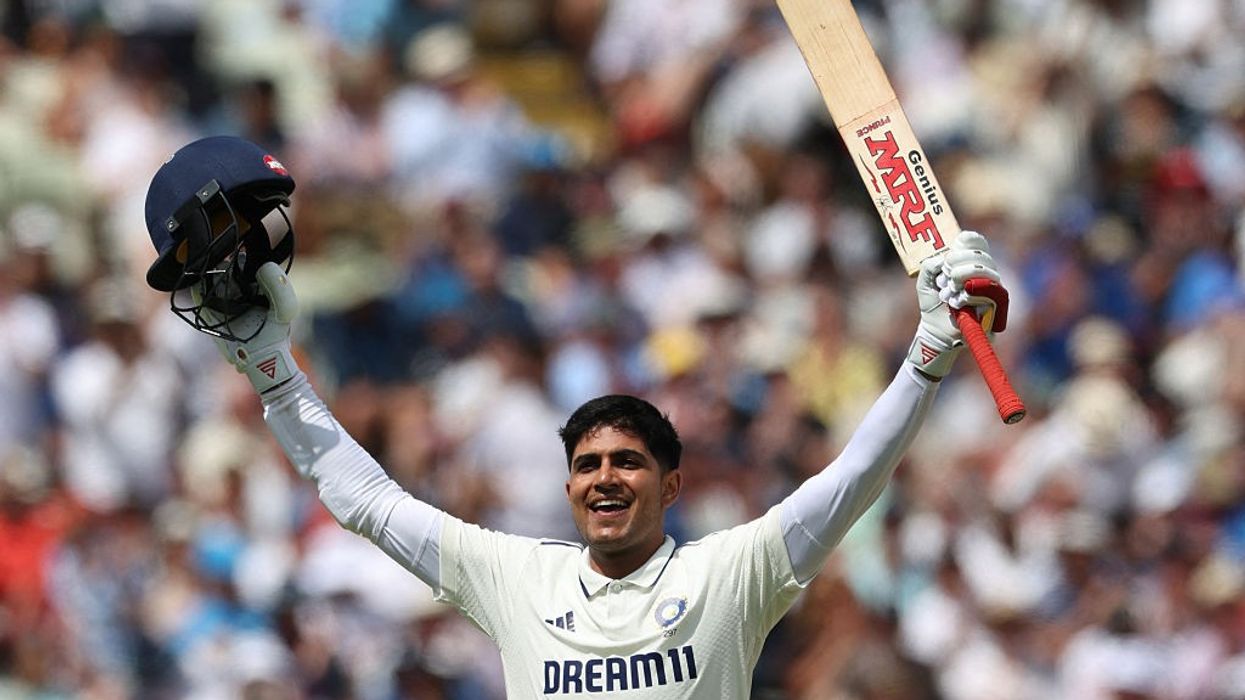ENGLAND’S performance in the just concluded football women’s World Cup final will help create a “really rich pipeline” of future talent, an influential Asian leader said, as others predicted a positive legacy despite the Lionesses’ defeat last Sunday (20).
Spain beat European champions England 1-0 in the final match in Sydney, leaving fans at home heartbroken.
But the huge national interest in the Lionesses showed how far the women’s game has come, particularly since Sarina Wiegman’s side won the European Championship last year.
The final was shown live on both the BBC and ITV, with BBC reporting viewing figures of 12 million – excluding 3.9 million views on BBC iPlayer and its website and app.
A peak of 11.5 million people tuned in to watch England beat Australia in the semi-final midweek.
In an exclusive interview, Sanjay Bhandari, the chair of Kick It Out, football’s equality and inclusion charity, said the team’s performance in the tournament, despite the many challenges, will lead to a rich pipeline of future talent.
“I think, for girls of all ethnicities, this will inspire them to want to play, to get into the game,” Bhandari said on Monday (21).
“We know young Asian girls play just as much as white girls. The figures for grassroots football are very healthy – there is heal[1]thy participation from young Asian girls.
“What we need to see is them breaking through in the elite pathway into the professional game.”
Surekha Griffiths, the Middlesex-based referee said the national side’s performance in the hugely successful tournament would leave a positive legacy, offering role models for girls and boys.
“We’ll inspire girls to get into football because, rather than saying ‘I’m going to be a Ronaldo, a Messi’, you’re suddenly going to be a Chloe Kelly or a Lauren James or a Mary Earps. It’s a dialogue that you don’t even know is changing,” Griffiths told Eastern Eye.
“They are now making kits for girls which are for girls. They are not for boys and you’re not looking like a boy – you’re looking like a girl footballer.”
She said the momentum generated by the Euro 2022 win and the World Cup final will do to the women’s game what the 1966 victory did for the men’s game.
“I grew up knowing England won the World Cup that year. So, there was a buzz which followed all of that. And, obviously, football has always been a big thing for men. But what I love is that now we’re basically part of that beginning,” she said.
“In 30 years’ time, my kids will be talking about ‘I remember when they started showing [women’s] football, England football on TV’. Now they’ll be like queuing up to try and get a ticket, probably in the years to come.”
According to the latest update of the FA’s [Football Association] Asian inclusion strategy published earlier this month, male and female Asian participation (aged 16+) within grassroots football has shown a general upward trend. Female football has continued to grow within Asian communities at 17.5 per cent, compared to 15.4 per cent in 2022.
However, the number of professional players of Asian heritage remains low, so tackling under-representation in the playing population is crucial.
Bhandari said this challenge is more for the professional game itself, rather than the Asian girls, to make it “more representative of the people who are actually playing the game”.

He also pointed out a link between social mobility and the academies, which are often located outside of towns.
“There isn’t the sort of culture of clubs paying for Academy prospects to actually come and travel… There’s quite a bit that needs to happen to break down those barriers for all people of colour, to enable them to break through into those elite pathways. Basically, dealing with challenges around connecting with people who live in suburban and city locations and how that interacts with academies that are out of town will be quite a big challenge to resolve,” Bhandari said.
On the challenges facing ethnic groups, Griffiths said Asian girls generally lacked support from their families, compared to their male counterparts, to pursue an interest in football. “We haven’t, in the past, encouraged our young daughters, for instance at the age of five, ‘let’s find a team for you to play football, let’s ... see if that’s something that might stick’, because it’s never really crossed our minds [that] it’s something that can get you anywhere, or it has been proven to be a positive thing for women or girls, until now,” she said.
The limited number of Asian role models in elite football could also be a factor, Griffiths added.
“We’ve got a few, obviously, we’ve got role models in terms of women now, which we didn’t have before. But we haven’t got brown women, for instance, or we haven’t got south Asian women.
“We haven’t got names that sound like ours, or people who’ve got families like ours, who have been brought up potentially like us. So that’s another thing,” she pointed out. “I can’t tell you how many young girls and Asian families come to me and say ‘it’s brilliant to see an Indian woman refereeing.’”
Kick It Out carried out research for the FA to further understand serious incidents of discrimination and physical abuse in grassroots football. It found that Asian players are deemed to be most likely to experience discriminatory abuse based on ethnic origin.
But Bhandari cautioned that it may not be possible to be aware of all the barriers that prevent Asian girls from progressing to top-flight football, and called for “meaningful research” into exactly what the obstacles were.
He said, “We know some of them will be around social mobility and the location of academies. We know the absence of role models is likely to be part of it and there may well be that discrimination is an element, but we don’t know how much it is attributable to each factor.
“The challenge is to understand how much is added to those factors, how much [study] is done into other factors, and how do we overcome those barriers. That’s why we want to focus on conducting some proper research to understand truly what the barriers are, and what the solutions are.”
Griffiths suggested parents volunteering for the sport would make a big difference. She signed up for a referee course with the intention of helping her sons’ team. But she impressed so much with her officiating that opportunities started coming her way.
“You don’t have to know a thing about football in order to be volunteering for sport. That’s how we’re going to make the change,” she said.
“We’re not going to change the world in one day. But we are going to be part of the change if we do it that way.”
She pointed out a shift in the community’s attitude, especially from the second generation, towards the women’s game. She said she had seen plenty of Asian girls, with parents cheering from the sidelines, battling it out on the pitch.
“[The parents] really want them to pursue it [football]. They’re really into it. They really want them to be part of this change,” Griffiths added.
Bhandari said clubs need to do more to tackle the under-representation of black and Asian girls in the women’s game as well as Asian boys in the men’s game.

“Ultimately, the resources to resolve those challenges sit with the clubs. The clubs have the resources to deal with that sort of unequal representation on the pitch. What we could do is to try to help them to understand what’s going on and what’s going wrong and how they might be able to rectify it,” he said.
Dal Darroch, head of diversity and inclusion strategic programmes at the FA, agreed that there was much more work to be done in creating opportunities for Asian communities.
“It’s crucial that the footballing bodies continue to work together to ensure the game becomes truly representative. Asian communities make up the largest ethnic minority groups in the country, and ensuring this is better reflected in our game will remain a strategic priority for us for years to come,” he said.
Before kick-off last Sunday, prime minister Rishi Sunak said the Lionesses were winners, regardless of the result.
“For my daughters, and for every girl in this country, you have made football something for them. You have made them feel they belong on the pitch,” he wrote on social media.
“In a way, you’ve already brought football home.”
Prince William, president of the FA, told the team after their defeat: “Your spirit and drive have inspired so many people and paved the way for generations to come”.
















 Fury’s return in 2026 now raises questions about who he will faceGetty Images
Fury’s return in 2026 now raises questions about who he will faceGetty Images
